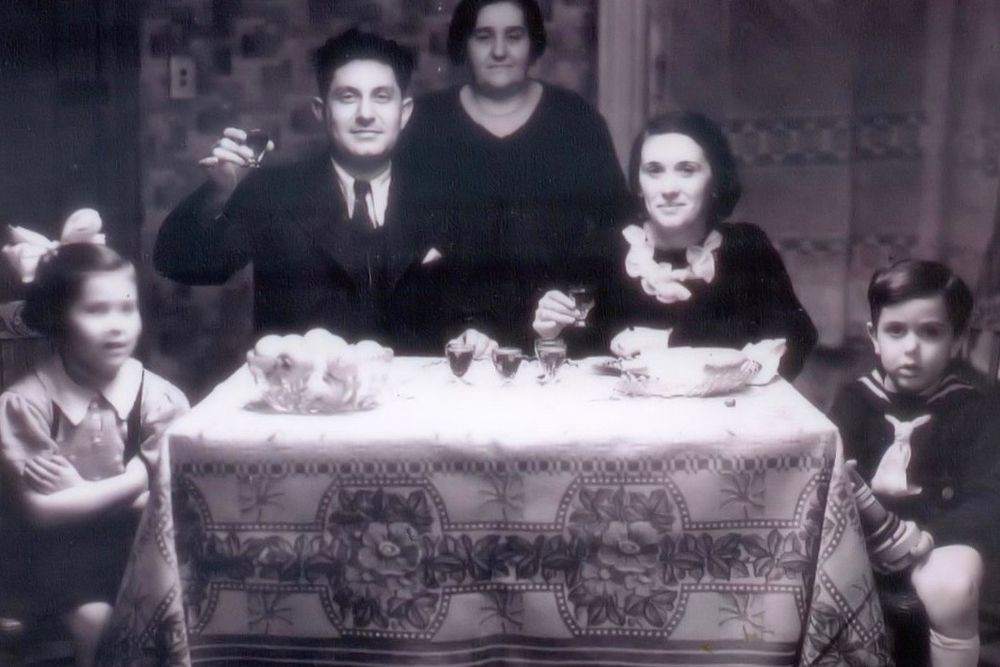Szlama Zalcman was born in 1905 in Józefów on the Vistula River. For work, he moved to Lublin, where he met a girl from Grodzka St., Hena Resia Rajsfeld. In 1929, Szlama left for Belgium; Hena soon followed him. The two got married on 9 December 1930 in Antwerp and quickly had two children: Josephine born in 1931, and Henry Herbert in 1933. Hena's mother, Ruchla Rajsfeld, joined them permanently from Lublin.
Szlama worked as an electrician while Hena took care of the house. Their everyday life was captured on the surviving photos: holidays by the sea, ceremonial gatherings at the festive table. A loving family whose peaceful existence was abruptly interrupted by the German troops entering Belgium in May 1940.
The fate of the Zalcmans in the first two years of the war is unknown. A trace of the family appears only in documents from the archives of Kazerne Dossin Memorial, Museum and Research Centre, established within the former Mechelen transit camp for Jews — the only such camp in Belgium. On the preserved inmate and transport lists, one can find the names of Hena, her children and her mother. They were arrested in unknown circumstances and registered in the Dossin barracks on 5 December 1942. Hena (age 37), Josephine (age eleven), Henri (age nine) and Ruchla (age 69), together with over 600 other prisoners, were assigned to the transport no. 19 sent to Auschwitz in January 1943. Each deportee received 900 grams of bread, 150 grams of honey substitute, 25 grams of butter and 50 grams of sausage for the journey. It was the last passenger train to leave Mechelen with prisoners. For the next nine transports, freight wagons were used.
On 18 January, the train arrived at Auschwitz. After the initial selection, most people, including 90% of the women, were immediately murdered in the gas chambers. Between 4 August 1942 and 31 July 1944, the Germans transported over 25,800 Jews residents (non-citizens) of Belgium from the Dossin barracks to their deaths.
Szlama Zalcman survived. After the war, he left for Australia, where he started a new family. He never told his son, born in 1950, about his wartime experiences or about his first family. Only from old photos and documents found after his father's death did Lucien Zalcman learn that he had a half-sister and a half-brother who perished in the Holocaust.
